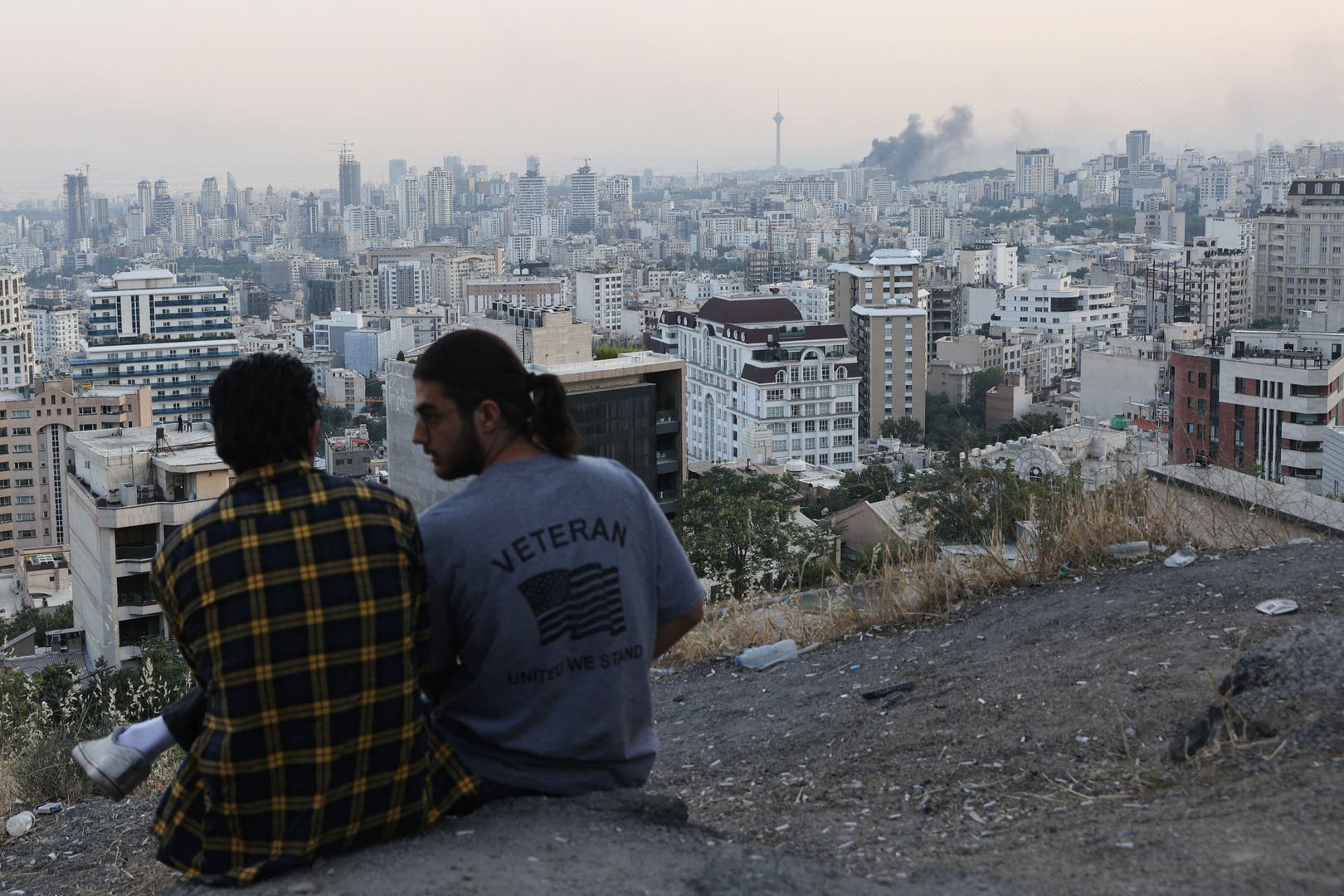INTERNATIONAL VIEW - It could get even worse: In Iran, fears are growing about what will happen next

Anyone who demands personal freedom and political codetermination in Iran lives dangerously, as critics of the Iranian regime face arrest, torture and, in the worst case, death. Nevertheless, a significant portion of the Iranian population continues to dare to demonstrate against strict dress codes, the dire economic situation, political arbitrariness, and police violence – as they did, for example, following the violent death of 22-year-old Kurdish woman Mahsa Amini in September 2022. Under the slogan «Woman, Life, Freedom,» Iranian women in particular attracted worldwide attention.
The Iranian regime, which claims to be based on Islamic principles, has long been supported by only a minority of the population. Nevertheless, it is far from certain that the population will exploit the now obvious weakness of the ruling elite to stage a popular uprising. In the face of war, many Iranians see Israel as their greatest enemy. This could benefit the regime – as has been known to happen when a country's population rallies behind its much-criticized leadership in response to an external threat. Indeed, very few Iranians want a revolution brought about by outside forces.
Above all, members of the army, the Revolutionary Guards and the Basij militia, who are collectively tasked with keeping society in check, have a personal and material interest in maintaining the system. In addition, many Iranians – especially those from the poorer and less educated rural population – are very religious and conservative. Although they also suffer from widespread corruption, mismanagement and lack of freedom in Iran, they nevertheless identify with the regime.
The opposition is poorly organized
The majority of Iran's roughly 90 million people were born after the Islamic Revolution of 1979 and are therefore at least 45 years younger than Supreme Leader Ayatollah Ali Khamenei. Like his predecessor, Grand Ayatollah Ruhollah Khomeini, he belongs to the founding generation of the Islamic Republic. Under Khamenei's more than three decades of rule, Iran's political system has hardly changed – and, intentionally so, as the revolutionary leader apparently fears that concessions to the opposition would lead to new demands that would undermine the strict customs of the Islamic Republic and weaken its system.
Khamenei, now 86, was elected to be Iran’s supreme leader shortly after the end of the Iran-Iraq War in 1989. With a network of allied militias – including Hezbollah in Lebanon, Hamas in the Gaza Strip, and the Houthis in Yemen – he managed to avoid war on Iranian territory despite his aggressive rhetoric, especially against the U.S. and Israel. But that time is now over. In fact, even Khamenei's supporters now feel that he cannot protect them from Israeli or American bombs.
It is unclear what might follow a collapse of the regime. There is no organized opposition in Iran with a clear vision for a post-Islamic Republic era. Liberal and left-leaning groups are internally divided. Reza Pahlavi's supporters are demanding his return to power. The eldest son of Mohammad Reza Pahlavi, the shah who was toppled in 1979, lives in exile in the United States. But even the monarchists are divided. The various political groups do not have nearly enough supporters to take charge and lead the country after a coup or to play a unifying role. This is especially the case since – despite its strong sense of national identity and undisguised pride in its history, language and culture – Iran remains a multiethnic society.
To date, there have been no reports of protests in Iran
Several groups, including Kurds in the northwest, the Balochis in the southeast, and the Iranian Arabs, who live mainly in Khuzestan on the border with Iraq, have some separatist ambitions. Thus, it is quite possible that the collapse of the Islamic Republic would also mean the end of Iran's territorial unity. The neighboring Arab states are intently watching developments in Iran, as they know that the war’s repercussions will be felt throughout the Middle East.
Since the Islamic Revolution in 1979, the regime in Tehran has been trying to export what it considers to be a successful project to its Arab neighbors. During the so-called Arab Spring of 2011, when hundreds of thousands of people took to the streets in Tunisia, Egypt and Yemen to demonstrate against their rulers, the power elite in Tehran watched with great interest what was happening in their neighborhood. For several weeks, representatives of the regime even welcomed the popular uprising in Egypt, describing it as an «Islamic awakening.» But when it became clear that the people in Arab countries were demanding political codetermination rather than a regime modeled on Iran's, the leadership in Tehran lost its excitement about the revolutions in the region and changed course.
In their own country, Khamenei and his entourage have always managed to prevent radical upheaval. Now the regime appears to be faltering. However, large protests against the power elite have so far failed to materialize. Many Iranians see themselves and their families as being under existential threat from Israeli and American attacks – and face an uncertain future. In the Islamic Republic's greatest crisis, fears about the future are growing.
Latest articles
NZZ Geopolitics – The independent Swiss view
Standing outside the American media establishment, the NZZ offers distinctive insights that challenge the polarized narratives often found in U.S. coverage. Our goal is to provide in-depth, nuanced reporting on global affairs, including developments in the United States, Europe, China and beyond. Taking a nonpartisan stance, we approach events with a sober and critical eye. Backed by a trusted network of international correspondents and expert reporters based in Switzerland, we deliver sharp analysis and a deeper understanding of geopolitics and the global economy.
Sign up for our free newsletter or follow us on Twitter , Facebook or WhatsApp .
Posting Komentar untuk "INTERNATIONAL VIEW - It could get even worse: In Iran, fears are growing about what will happen next"
Posting Komentar